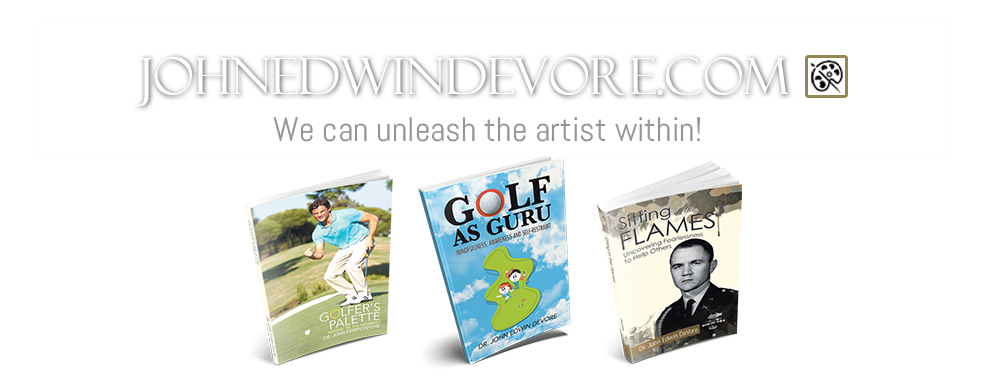How can golf be a game and therapy too?
As a graduate of the United States Military Academy at West Point; and proud member of the Long Gray Line, the memory is etched with passing in review on The Plain for General of the Army Douglas MacArthur; watching him during football games at Michie Stadium; and hearing him deliver his farewell address to The Corps of Cadets in Thayer Hall on May 12, 1962. On this historic day, he remarked,
They teach you to be proud and unbending in honest failure, but humble and gentle in success; not to substitute words for actions, nor to seek the path of comfort, but to face the stress and spur of difficulty and challenge; to learn to stand up in the storm but to have compassion for those who fail; to master yourself before you seek to master others; to have a heart that is clean, a goal that is high; to learn to laugh yet never forget how to weep; to reach into the future yet never neglect the past; to be serious yet never to take yourself too seriously; to be modest so that you will remember the simplicity of true greatness, the open mind of true wisdom, the meekness of true strength.
And more of his wisdom unfolded in the context of Army Black Knights football,
Upon the fields of friendly strife are sown the seeds that at other times and other places bear the fruits of victory.
How can golf be therapy? Golf is a playground of friendly physical and mental challenges-strife-where reflective and felt messages await the perceptive golfer on every tee, fairway and green while in nature’s office. As golfer’s our only requirement is to embrace our chosen sport as both a game and a practice. Just as we need to prepare our club and body mechanics, we need to prepare our mental skills: deliberately going to the breath, quieting the mind, connecting with the target and trusting the subconscious to deliver a club through the golf ball to the awaiting target.
My experience is that when I play golf, it offers, as the situation dictates, the opportunity to either deliberately choose to play the game or deliberately focus on the reflections of the moment: what is going on here? There are infinite messages available; and the necessity is to be ready to receive them. My personal learnings have uncovered anger, fear, irritation, delusion, jealousy, envy, joy, happiness, ah-ha moments and countless other reflections. The amazing experience is that the self-awareness, reactions and priceless response seeds, uncovered on the golf course, have historically shown-up, and will continue to show-up, in other areas of my life, too.
The suggestion is that golf can be therapy if one chooses to have it be a game and a practice where we can learn skills that help us accept and master ourselves and model the way as a person, in relationships and when helping others. This undertaking is a fascinating and rewarding challenge and can remind us “to be modest so that (we) will remember the simplicity of true greatness, the open mind of true wisdom, (and) the meekness of true strength.” If you are up for the golf as therapy challenge, the next time you are standing on the first tee, take the time to ask the question: What is going on here? Just stand and listen to what the “inner roommate” has to offer today. If your “inner roommate” is anything like mine, it will have a great deal to say!

